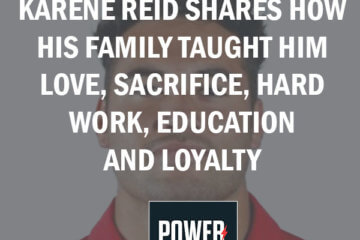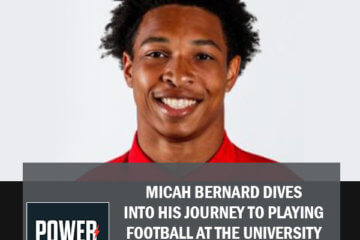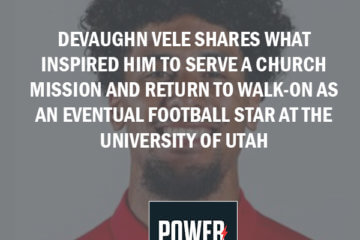Listen to the podcast here:
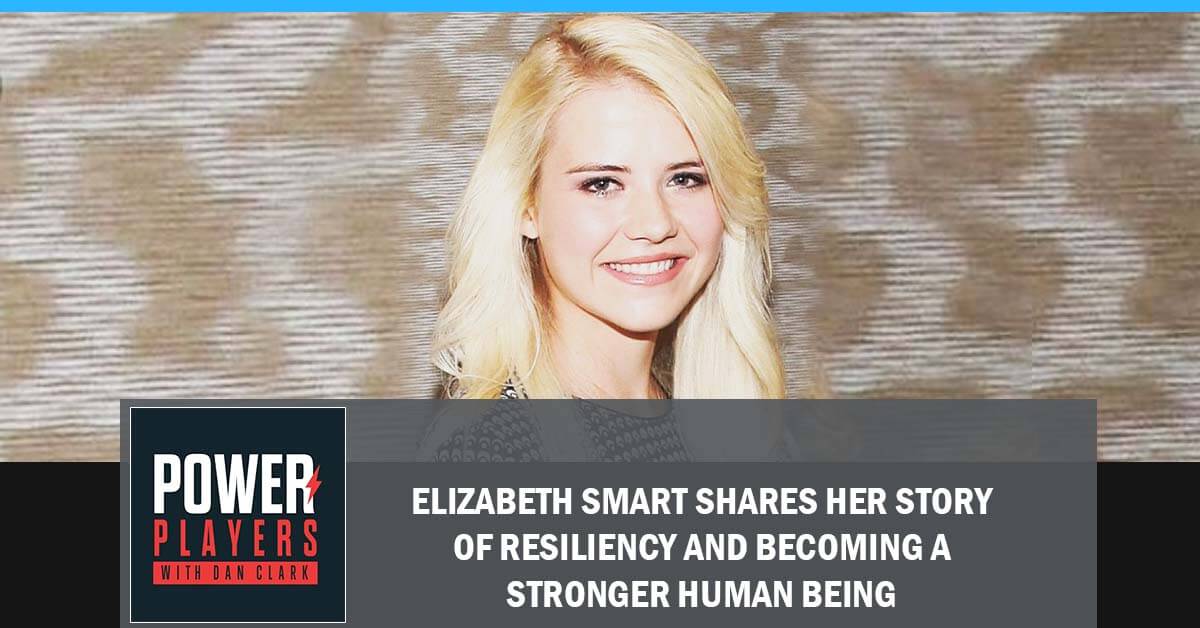
In this episode, an inspiring guest shares a story of resiliency that you would never imagine. Elizabeth Smart was held captive for nine months before she was found and ultimately returned to her family. Now, she is raising awareness and helping other survivors in their journey. With her follow-up book, Where There’s Hope: Healing, Moving Forward, and Never Giving Up, she shares how she overcame that traumatic time and reclaimed her life. Listen as she sits down with Dan Clark to talk about her overcoming and using her story to become a support for others through the Elizabeth Smart Foundation.
—
Elizabeth Smart Shares Her Story Of Resiliency And Becoming A Stronger Human Being
In this episode, Elizabeth Smart, who made international news when she was kidnapped as a fourteen-year-old little girl and held for nine months until she was rescued, shares her incredible story of resiliency, giving us an inside glimpse of why and how she was able to positively deal with this horrific nightmare and become a stronger, more amazing human being as a result of it.
—
Thank you so much for joining me on this show. It is an honor and a privilege. You’re a hero to so many people.
Thank you very much for having me. I’m excited to be here.
Let’s take it back for those readers who aren’t familiar with your story. Can you give us the synopsis of exactly what happened? Take us right up to the point where you were rescued, and then we’ll take it from there to illuminate this amazing life of forgiveness and resiliency that you epitomized.
I was your average everyday girl and about to graduate from junior high. The night before I graduated, I woke up to a man standing above me, pointing a knife at my neck, telling me to get up and go with him. I did not feel like there was an option but to do what he said. None of this safety that I had been taught in school about don’t talk to strangers, taking candy from people you don’t know. All that stuff, none of it applied to this situation. I felt like I didn’t have an option.
I remember I did exactly as he said because, more than anything, I didn’t know what he had already done inside my house. I didn’t know if he had killed my parents and brothers, but I did know that my younger sister was still asleep in bed next to me. I did not want him to hurt and take her. I went with him. He led me up into the mountains over three miles behind the home I grew up in.
It doesn’t matter what other people do to you, they can never take away your value as a human being.
There, he chained me up, raped and abused me. It went on like that for about five months. He took me to Southern California. I should mention, it wasn’t just him. His wife was part of it. They took me to Southern California, where they held me captive for four more months. During which more abuse and rapes happened.
Eventually, I was able to convince them that we should all return to Utah. That in and of itself honestly is a miracle because they had every reason to never return to Utah. I was able to convince them to return. We ended up hitchhiking back to Utah, which when I suggested that idea, I thought it would be a good idea because hopefully, it would put us in close contact with a lot of people.
Surely, one of these individuals would realize that there was something wrong or off about the situation. Hopefully, they’d be able to help me, which I hope would lead to my rescue. My rescue did not come through the hitchhiking, but it did come on that journey back to Salt Lake. At the very end of that journey, we made it up to Salt Lake. We were on State Street. If you live in Salt Lake or have been to Salt Lake, it’s a pretty large street and basically runs from one end of the valley to the other.
We were still ways out from downtown Salt Lake. We were on about 106 South when all of a sudden, a police car pulled up and another police car and another police car. Pretty soon, it felt like we were surrounded by police cars, and officers were jumping out, and they ran up and started asking questions. Initially and truthfully, I didn’t immediately tell them who I was. I lived in fear for such a long time. It was terrifying to say something that my captors would hear and be upset with me because they had gotten away with so much for so long. It didn’t seem like anyone could protect me from them. I certainly didn’t want to endanger myself and my family.
They’d told me over the last nine months that if I ever did anything or said anything they didn’t want me to do or say that, they’d kill me. If they didn’t kill me, they’d kill my family. It was paramount to me that not only do I protect myself, but I protect my family as well. I didn’t initially tell them that I was Elizabeth Smart.
It wasn’t until one of the police officers pulled me aside, separated me away from my captor, and said, “There’s a girl who’s been missing now for a very long time, and her family loved her more than anything in this world. They want her to come home. They never stopped looking and searching for her and want her to come home.” It was only then that I was able to admit who I was and that ultimately led to my reunion with my family.
Our family was so much a part of the search, the prayers and the yearning for you to be found alive and safe. In what mental and emotional state were you in when you finally were confident enough to trust the police officers and society? If you came clean and said, “This is who I am,” that you would remain safe. In what mental state were you in that frightened paranoia that you described? What steps did you go through to become “okay” again and become so strong afterward? Take us through that transitional period of finally feeling safe again and being able to heal.
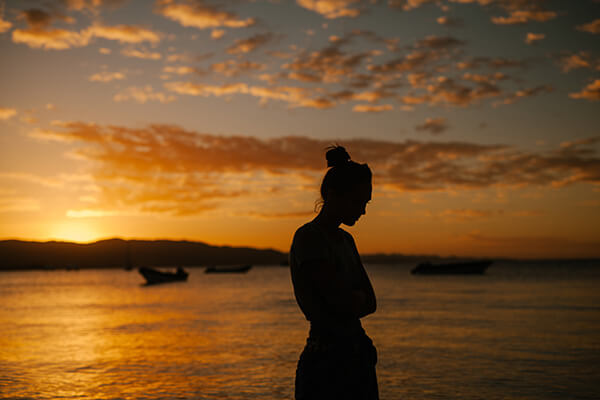
Story Of Resiliency: There were whole new levels of trauma, hurt, and pain that we had to work our way through.
Honestly, I remained in that state of fear, even after I had been separated from my captors. It wasn’t until I saw my dad for the first time that I believed I was safe. Looking back on it, it’s easy to think, “The police officers would have protected you,” but nobody had for so long. I didn’t know if anyone could. When I saw my dad and was reunited with my dad, that was when I knew that it was going to be okay.
I didn’t know what was going to happen or lay ahead, but I knew that he would protect me no matter what. That was the beginning. Certainly, my mom has been such a huge influence in my life. As far back as I can remember, she always was the one that was helping me to pick myself up and dust myself off and go out and try again.
That was honestly the way she raised me even prior to my kidnapping. It didn’t change when I got home. There were certain things that were different. There were whole new levels of trauma, hurt, and pain that we had to work our way through. At the end of the day, when my mom stayed consistent with the way that she had always raised me, and ultimately that’s what I needed. I needed consistency, love, trust and the ability to make my own decisions, learn and grow from them. I needed a safe environment to do that in, and that’s what both my parents provided and gave to me.
That’s what prepared you to stay strong and creative, and courageous through this whole nine-month ordeal. Do you have any specific advice for parents? You’re the proud mother of three beautiful children. Obviously, you’ve had plenty of time to reflect on those survival techniques, specific tools, and tactics, if you will. Techniques that allowed you to survive one day at a time. Teach us about that. If you can reflect on what you think, the 3 or 4 things that allowed you to wake up every day in captivity and still believe that you were going to be okay.
The very first one to start with is knowing that my parents loved me unconditionally. I think that’s the greatest gift any parent can give their child is not to tell them that I love you, but help instill in them and let that child know that you do love them unconditionally. There isn’t anything that they could do that would make you stop loving them. For me, that was ultimately what made the thought of surviving worthwhile.
I never had anybody else would, but for me, knowing that they would love me and want me back was enough. That is what helped me survive. I have a very deep faith in God. That was a huge source of comfort and helped me while I was gone. It was so much more comforting to believe that there was an all-knowing, all-powerful, kind and loving Heavenly Father watching over me than a cruel God who didn’t care.
If it was a cruel God, that meant that I was truly alone, but the thought that God was kind and loving, and He is our Heavenly Father made me feel I could keep going because I wasn’t alone. He understood what I was going through and that whatever happened, whether I lived or died, it would be okay because I was in his care. That was very important to me as well.
Do all the things you wanted to do because by feeling sorry for yourself, reliving the past, and holding onto that, you’re only allowing them to steal more of your life away from you.
Regardless, if you were raped, humiliated, physically beaten, shackled with a metal cable, as I read in your book, that gave you some mobility. You were shackled to a tree, shackled to something that did not allow you to escape. Regardless of what happened to you, why did you still feel okay and beautiful? Not like damaged goods, you recovered. You are resilient. You came out of that spotless as this daughter of God, as you would say, talk to us a little bit about that. You still knew your parents loved you unconditionally. Regardless of how much you were beaten up physically, emotionally, somehow, you survived. You didn’t just survive. You thrived on recovering as of this amazing young woman.
I don’t know how beautiful I felt in all truthfulness. I didn’t know what to expect coming back. Initially, I was extremely overwhelmed all of a sudden. Everyone knew my name, recognized my face, and came up to me, hugged me, and said how they prayed for me. That was so kind and sweet of them to come back to. On the other hand, I grew up being a very shy girl. All this attention was overwhelming.
There was this other side of me that thought, “If people knew what happened, would they still want to hug me? Would they still want to tell me that they loved me and prayed for me? Would they change their mind?” I remember one night, and most of them had only been a couple of nights after I had gotten home. We were sitting in my parents’ bedroom and watching the news. I remember the screen going black, and it was neon writing coming across the screen.
It was like a message not directly to me because initially, it began by saying, “Elizabeth Smart is not pregnant.” It followed and said something like, “Elizabeth, you’re beautiful. We love you. Stay strong.” The first part of that message saying, “Elizabeth Smart is not pregnant,” helped me realize that what had happened as far as me being raped wasn’t a secret.
Whether people had verbal confirmation from me about it or not, people automatically jump to the conclusion that if I were kidnapped and came back alive nine months later, I would have been grateful I was gone. Yet here was this message saying that I was still lovable, beautiful, worthwhile and that meant something to me. As I went on and began to experience more of life, and met other survivors. I came to acknowledge for myself that it doesn’t matter what other people do to you. They can never take away your value as a human being.
I met survivor after survivor. Our stories were so similar that we had all experienced some form of sexual abuse or trauma. I saw how lucky I was because a lot of these individuals who suffered this extreme trauma and abuse suffered at the hands of someone who knew them, whether it was a parent, a friend, a family member or someone they trusted. I realized how lucky I was and that I was abused by a complete stranger.
I never had that degree of betrayals that many victims out there have. I think that lit a fire in me and made me feel like I have this purpose. I wanted to speak out and help each one of these victims and survivors know that some person hurt them, raped them, or assaulted or sexually abused them. I wanted them to know that it didn’t change who they were or are.
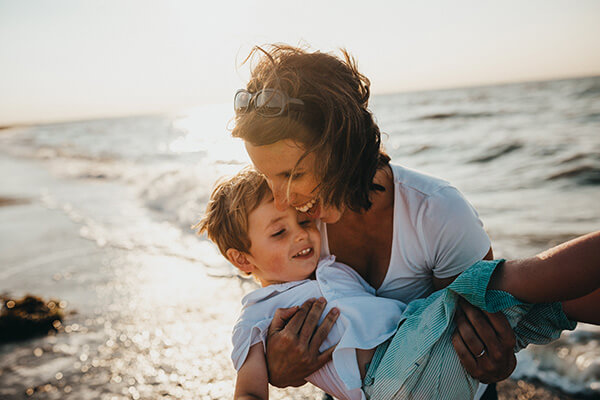
Story Of Resiliency: The greatest gift any parent can give their child is not just to tell them but instill in them and let that child know that you love them unconditionally, and there isn’t anything they could do that would make you stop loving them.
It doesn’t change the value that they innately possess inside them. I wanted them to know and embrace that and know that they deserve every happiness in this life, to find joy, peace and love. They shouldn’t be ashamed of what happened to them. By talking about what happened to them, whether it’s publicly or not publicly, that educating people around them and education is a powerful tool.
As we share our story, raise awareness, a lot of times, that awareness leads to outrage, and outrage is what often leads to change. We need those changes. We’re witnessing that now. I’ve read that it’s the world’s largest civil rights movement going on. It’s the stories that have happened. Hadn’t have been shared, we wouldn’t be in this situation that we are in now, sharing your story, opening yourself up to that vulnerability, that is strength, power and what ultimately makes a change.
You were rescued at about age fifteen then. Did you go back to high school? Take us from the transition years quickly through deciding that service before self was a great healing tool. You decided to serve a mission for your God. You came back and understood Elizabeth that you could love again, be loved and you fell in love with the man of your dreams. Consolidate that period so we can get that into the story.
In the next decade of my life, I went back to high school. When I was in high school, I had a high school boyfriend. For the most part, my high school experience was probably pretty average. Nothing too extraordinary happened during high school. One of the things that did absolutely impact my life happened the morning after I was rescued, when my mom told me, “Elizabeth, what’s happened to you is terrible.”
“There aren’t words to describe how wicked the two people are. They’ve stolen nine months of your life from you that you will never get back, but the best punishment you could ever give them is to be happy, live your life, do all the things you wanted to do. By feeling sorry for yourself, reliving the past, holding onto that, only allowing them to steal more of your life away from you, and they don’t deserve that, a single second more.”
For me, that was great advice. I also feel like I need to say that each of us has a different path for healing, and there’s no comparing one person’s story and pain to another. We all have to find our individual path, and what worked for me may not work for anybody else. Going back to my mom’s advice, I don’t think she meant that I’d never be sad or frustrated or feel pain. I think she absolutely knew that I would.
She ultimately wanted me to remember that happiness exists and that even if I don’t feel it, I should believe in it. That’s what I should want for myself and in my life, and I hold on to that until I eventually have it. That advice serves and has continued to serve me well. I do want to have the best life I can have. I want my life to be meaningful, the person that I can be proud of, a good and kind person working to make a difference and the world a better place. That is the person I want to be.
Happiness exists. Even if you don’t feel it, you should believe it and that’s what you should want for yourself.
Going back to high school, I was anxious and excited to get my driver’s license, go to the high school prom. I was excited to go and be done with high school and go on to college. I studied music, specifically heart performance. During that period, I also decided to serve a Mormon mission. I went to France and felt like, for me, my faith had played such a part in helping me to survive. It had helped me so much that I thought, “If it can help someone else, then I would like to share that with them.” I did do that.
When I finished, I had met another missionary. He was this handsome man from Scotland. We wrote letters like full-blown handwritten letters, envelopes, postage, stamps and everything. We wrote to each other while he finished. He had six months more after I finished. When he finished, he invited me to come out to Scotland, and I went to Scotland. The rest is history.
It is with three beautiful children. Let’s quickly shift gears as we wind down our time. You wrote your amazing book. I read the New York Times bestseller, My Story, which was about being held in captivity as a teenager, obviously, and how you manage to survive with the powerful message for all of us of what it takes to do that.
You followed your book up, My Story, with where there’s hope. That’s an amazing book that takes us into the depths of your soul to explain how you overcame trauma, found the strength to move on, and reclaimed your life. Take us back to 1 or 2 character traits that you believe survivors have, especially for women, that they can incorporate into their lives.
Thinking about that whole experience of writing the book was a journey for me. There are some pretty amazing people out there, so I’m sure there are some people out there who would like to whip a book out. No problem. For me, I am not one of those people. It takes a lot of time and effort on this journey of writing where there’s hope, one of the things that stands out to me as you asked me that question about what survivors and specifically women have, what pops to mind is the interview that I had with Diane Von Furstenberg.
She said that “I have never met a woman who isn’t strong. She simply doesn’t exist.” Initially, when I took that right off the bat, I was like, “I don’t know, maybe there’s some, not those strong women out there. I’ve met a few complainers in my life,” but as I have since spent time thinking and pondering that, I do think she’s right because life isn’t easy for anyone. Being a parent, myself, having three children, I’m married. I’m not by myself, but being a parent, being a mother is the hardest thing that I have ever done.
There are so many women who experienced that. Through this experience of parenthood, I would have to agree with Diane Von Furstenberg that there isn’t a woman who isn’t strong. Every woman is strong. Weak women don’t exist. I think that’s true for survivors. There’s no such thing as a weak survivor. They simply don’t exist. When I say survivor, I don’t even mean all the ones still breathing because, unfortunately, there are many who don’t. They don’t make it to the other end, but that does not make them weak.
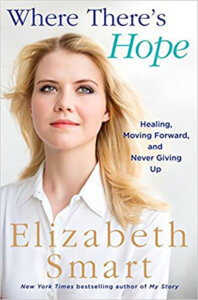
Where There’s Hope: Healing, Moving Forward, and Never Giving Up
Even begin to experience something so horrendous as being raped, kidnapped, murdered, or the moments leading up to the murder, you are not weak. You do not go through something like that. You do not experience something like that and are weak. None of us are weak. We are all stronger than we think we are. Personally, I wished each one of us could see how strong we are. I think that would help us all realize how powerful we each are and how much of a difference each of us truly can make.
You remind me of a couple of my favorite quotes, “Pain is a signal to grow, not to suffer. Once we learn the lesson, the pain is teaching as the pain goes away. In life, there are no mistakes, only lessons.” You also remind me about the significance of this show that we’ve put together called Power Players. I’m doing my best, Elizabeth, to find extraordinary human beings like you who understand the significance of passion. You’ve identified your passion, and your why is bigger than your why not.
It’s obvious that you continuously prepare yourself to be a better mother, spouse, friend, advocate and speaker. One of the things that stands out as far as every power player that I’ve had a chance to interview, and you are at the top of the list, is that you continuously pursue your passion for making a difference. That brings me to our final discussion that everybody wants to know about is the Elizabeth Smart Foundation.
As I looked it up online, basically the bullet point title says, “Prevention resources for victims and their families, hope for families, peace for victims, empowerment for all, smart defense, smart talks, get involved, helpful resources.” Take a minute to explain a little bit about your foundation. Most importantly, how everyone can get involved and support your amazing mission.
You read what our purpose is. We want to educate, empower, provide hope to victims and survivors. Education is one of the major keys to prevention. If we can prevent these crimes and abuse from happening, we absolutely should. We have a couple of programs that focus on prevention and education. One of them is our podcast called Smart Talks. I have a co-host. She and I have been able to interview incredible people, a lot of survivors, advocates, different agencies and talk about some of the services they provide to the victim.
For instance, we were able to interview The Rape Recovery Center. They’ve been in Utah for many years. They not only speak English, but they also work in Spanish. They are willing to talk to anyone who calls in, regardless of whether they’re in Utah or out of state, to try to help you connect with resources that are closer to you. They were incredible. They’re amazing.
We’ve also been able to interview a number of different therapists because of what I was talking about earlier about how no two paths to healing are the same. Honestly, there are as many different kinds of therapy and healing as there are people. I feel like my understanding of different kinds of therapy has grown so much, and I hope it continues to grow. There’s equine and art therapy, EMDR. I couldn’t even name them all for you. There are so many.
No two paths to healing are the same. There are as many different kinds of paths to healing as there are people.
At least for me growing up, when I heard the word therapy, I thought, “It’s going to be like a little leather settee in someone’s office. You lie there. You talk about the worst moments of your life.” That sounds awful. I don’t want to do that, but there’s so much more to it then than sitting on someone’s leather settee. If you will try therapy and it doesn’t work for you, go try a different one, find the right therapist and type of therapy. That’s been extremely educational for me.
It sounds like what you’ve taught us is that all therapies, regardless of the difference in the way that they do it, the methodology, still allow you. I’m not putting words in your mouth, but what I got out of what you’ve been teaching us is that you never know how strong you are until being strong is your only choice. These therapists, the people who are engaged to help us heal and become better, don’t matter the path. The result is the same. Do you agree with that?
Yes. These therapists are there to help you. They are not going to fix it for you. You have to fix it for yourself, but they are there to help you. To be your support, a mentor or coach that’s on the sidelines, helping you to work through whatever it is that you’re struggling with, but ultimately you do the work yourself. There are so many different options out there for you. If one doesn’t work, try a different one.
When you’re talking about prevention, rumor has it that I don’t know if you’re teaching karate or whatever, but we’re talking about self-defense. Is your foundation focused on that part of prevention as well?
Yes, rumor has it right. We do have our program. It’s called Smart Defense. I would love to say we are at 100% capacity at this moment, but with COVID-19 being here and doesn’t look to be going away, we are trying to find new ways of getting this information out there. I also think self-defense is a number of different skills that are being taught. It’s not jujitsu or Muay Thai. It’s a number of things coming together.
Whether it’s Smart Defense or any other self-defense program out there, and there are some great ones out there, you can’t go through the program once and be like, “That’s it. That’s neat. I’m done. I’m prepared. I’m a lethal weapon now.” No, this is the beginning point. It’s something that you need to think about and practice. It’s like anything. Since I had kids, playing the harp has almost come to a standstill. I uncovered my heart because every time it was uncovered in the past, my kids thought it was like the best jungle gym in the world. I was like, “Don’t stand on it. Stop climbing on it.” It’s that covered for others.
I started to uncover it, and I tried to go back and play some of the pieces that I had played in college. Honestly, I could not make it through the first line. Self-defense is the same way. This is something that needs to be ongoing, and you’re practicing. You can’t take it once and think you’re covered for the rest of your life. You need to think about and practice it. We do have our self-defense course.
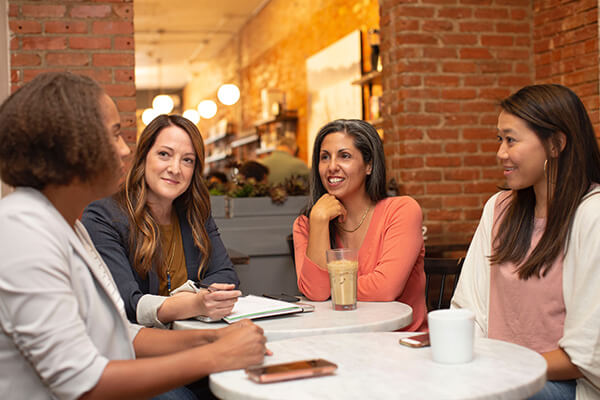
Story Of Resiliency: As we share our story, as we raise awareness, that awareness often leads to outrage, and outrage is what often leads to change.
We are developing and working on developing some other tools that will be useful for those who either can’t attend in-person classes or who have finished the classes but want to still remain active and continue to practice them. We are working on developing more tools so that it does become part of a daily mentality and practice. It’s been amazing and stretching for me personally. It stretches me and my mental capacity. It’s been a good experience. We might have to create a new normal COVID 19, but I still hope that we’ll be able to gather together and practice in class in person. I’m looking forward to that time as well.
How do we get involved with your foundation? How do we join your tribe and listen to your podcast?
Please subscribe to our podcast with almost every episode. In the end, we’ll give a brief recap of what we’ve discussed and hopefully what you can do or how you can get involved. Definitely stay up to date with our podcast. Subscribe to us. We’re on social media. I hope everyone can stay tuned and follow us because we will have some exciting announcements to make. I’m not at liberty to make them this time, but you should know it’s killing me not to because I love to. Please stay tuned because we will have lots of options for different ways of getting involved and supporting them in the near future.
Elizabeth Smart Gilmour, let me put you on the spot for one final statement. The professor, Randy Powell, was famous for coining that speech title, last lecture of all the things you’ve taught us to remind us how to survive, be strong and be resilient. We love you, Elizabeth. We honor you. We’ll all support you. What’s your last lecture? What’s your one final message to the world? The consolidated message is that you want your three children to understand more than anything that you want all of us to understand, survivors, those who are victims right now and change their mindset from a victim mentality to resiliency. What’s your final message?
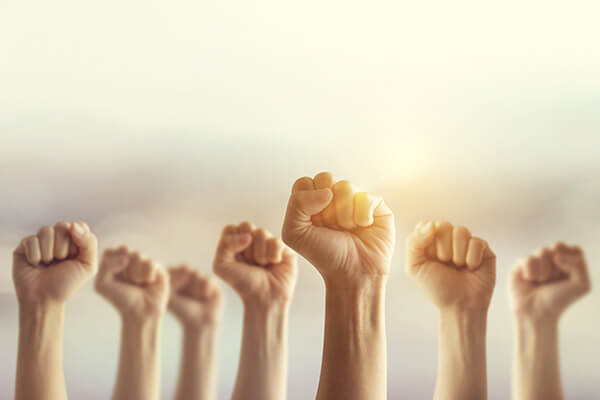
Story Of Resiliency: None of us are weak. We are all stronger than we think we are.
You deserve to be loved. Nothing anyone can do to you can change your worth and happiness is possible.
I have nothing else to say, tears in my eyes. Thank you so much, Elizabeth Smart. I appreciate you beyond words. We’ll definitely connect in every way possible out there. We’ve talked about passion and preparation and pursuit of that passion. No one has gone through what she has and emerged a stronger advocate, a more beautiful, caring, compassionate leader than you, Elizabeth.
It’s an honor to have you on my show. As I always conclude, I say, so I finally decided to be a power player like Elizabeth Smart Gilmour. Remember what she’s been teaching as the power play begins in you. Until next time, my friends, quantify your takeaway and make a powerplay. Thank you so much, Elizabeth. God bless you. Thanks for your inspiration.
Thank you for having me.
Important Links:
About Elizabeth Smart
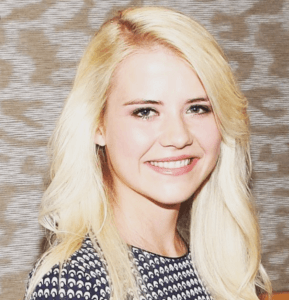 Elizabeth Ann Smart was kidnapped at age fourteen on June 5, 2002, by Brian David Mitchell from her home in the Federal Heights neighborhood of Salt Lake City, Utah, United States. She was held captive by Mitchell and his wife, Wanda Barzee, on the outskirts of Salt Lake City, and later, in San Diego County, California. Her captivity lasted approximately nine months before she was discovered in Sandy, Utah, approximately 18 miles (29 km) from her home.
Elizabeth Ann Smart was kidnapped at age fourteen on June 5, 2002, by Brian David Mitchell from her home in the Federal Heights neighborhood of Salt Lake City, Utah, United States. She was held captive by Mitchell and his wife, Wanda Barzee, on the outskirts of Salt Lake City, and later, in San Diego County, California. Her captivity lasted approximately nine months before she was discovered in Sandy, Utah, approximately 18 miles (29 km) from her home.
Smart was abducted from her home at knife-point by Mitchell, while her younger sister, Mary Katherine, pretended to be asleep. Mitchell, who claimed to be a religious preacher,[1] held Smart at a camp in the woods with Barzee, where he repeatedly raped her. During her captivity, Smart accompanied her captors in public on various occasions dressed head-to-toe in white robes and went largely unrecognized by those she came in contact with.
Since her abduction, Smart has become an advocate for missing persons and victims of sexual assault. Barzee was sentenced to 15 years in federal prison in 2010 for her role in the kidnapping and abduction, although she was granted early release on September 19, 2018, for previously uncredited time served.[3] Extensive disputes over Mitchell’s competence to stand trial lasted several years before he was deemed mentally capable in 2010, though he was diagnosed by forensic psychologists as having antisocial and narcissistic personality disorders. Mitchell was sentenced to life in prison without the possibility of parole in 2011.
